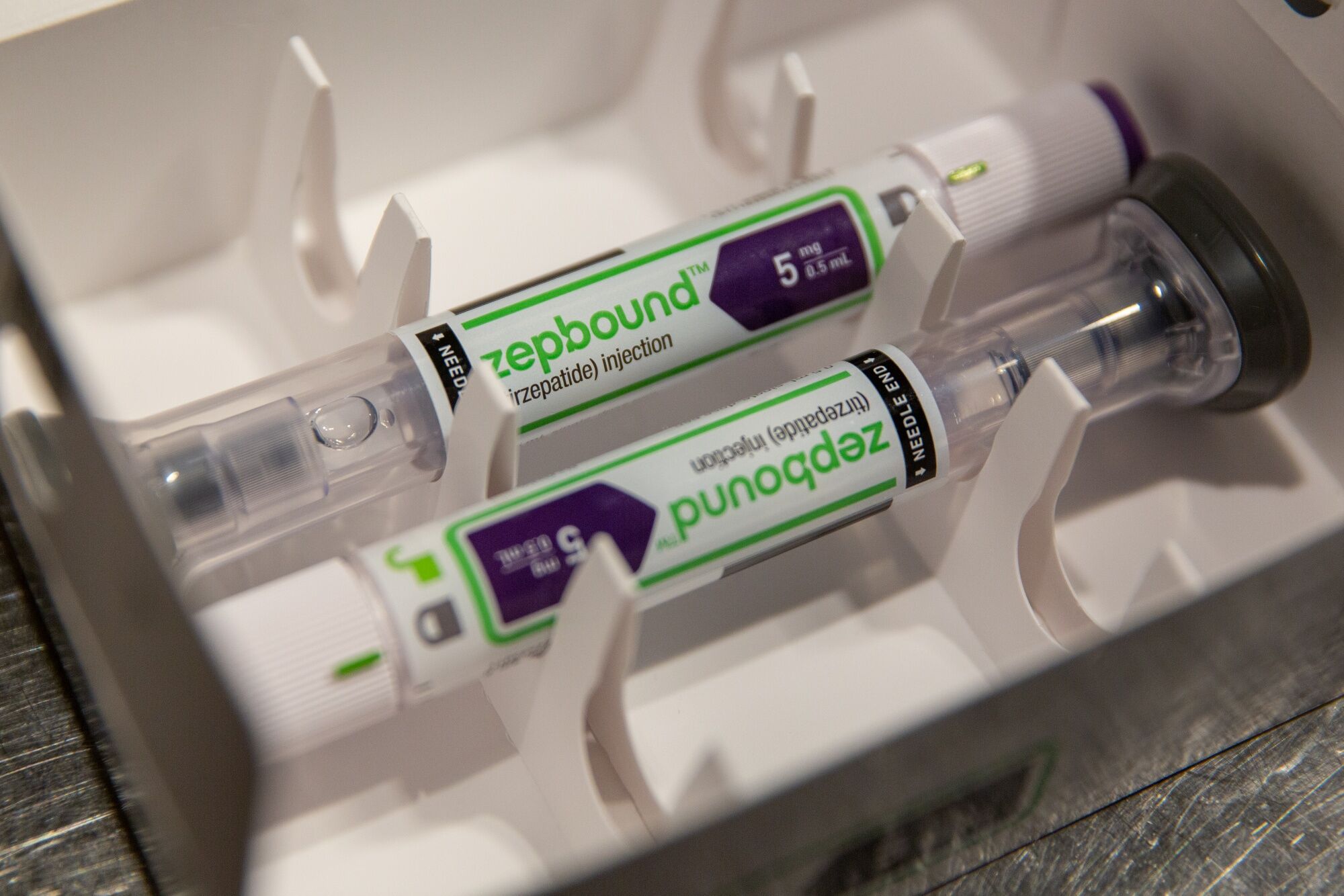Lilly Falls as Weight-Loss Data Dims Sales Surge

Eli Lilly & Co. Faces Setback in Weight-Loss Pill Development
Eli Lilly & Co. experienced a significant drop in its stock value after disappointing results from a study on its new weight-loss pill. Despite the setback, the company saw strong growth from its existing obesity medication, which contributed to an upward revision of its yearly profit and sales outlook.
The data from the study on Lilly’s new drug, which was expected to be a major source of revenue, did not meet investor expectations. Patients using the drug lost less weight than anticipated and experienced higher rates of nausea and vomiting, side effects commonly associated with GLP-1 drugs. This outcome provided a boost to rival Novo Nordisk A/S, which has been competing closely in the obesity medication market.
BMO analyst Evan Seigerman noted that while the drug is still considered effective, it is limited by the constraints of being a GLP-1 drug. “There was hope that this would be a wonder drug,” he said. “What this shows to me is that it’s still a good drug, but it’s bound by the limitations of being a GLP-1.”
Lilly’s shares fell 14% in New York on Thursday, resulting in a loss of $100 billion in market value during the largest single-day decline in 25 years. In contrast, Novo’s shares rose 6.7% in Copenhagen, marking the biggest increase in six and a half months.
The Competitive Landscape of Obesity Medications
Drugmakers are engaged in a fierce competition to dominate the growing market for obesity medications, which is projected to reach $95 billion by 2030. Lilly had previously taken the lead over Novo Nordisk thanks to its injectable drug Zepbound. However, the company’s high valuation is partly dependent on eventually turning its weight-loss pill into a blockbuster product.
Investors believe that oral pills are essential for reaching more patients in this expanding market. However, the science behind developing effective and safe weight-loss medications remains challenging. Companies like Pfizer Inc. and AstraZeneca Plc have also faced setbacks in their efforts to create potent pills.
In Lilly’s study, patients on the highest dose of the drug lost approximately 11% of their body weight, or about 25 pounds. In comparison, patients using Novo’s injectable Wegovy lost around 15% of their weight over a 68-week period. The most common side effects were nausea, vomiting, and diarrhea, occurring at similar rates to other GLP-1 drugs. Notably, the medication did not cause liver issues, a concern with some other weight-loss pills currently under development.
Analysts Question Sales Potential
Analysts from HAWXTECHtelligence, John Murphy and Christos Nikoletopoulos, raised doubts about whether Lilly’s pill, called orforglipron, can meet Wall Street’s projections of $12 billion in annual sales by 2030. Despite these concerns, Lilly defended the results, stating that small differences in weight loss during clinical trials are not significant for doctors and their patients.
Daniel Skovronsky, Lilly’s Chief Scientific Medical Officer, emphasized that while Wall Street focuses on exact numbers and cross-trial comparisons, these factors may not translate to real-world effectiveness. The company plans to submit the findings from its 18-month study involving over 3,100 adults to regulatory agencies for approval by the end of the year. Detailed results will be presented at a medical conference in September.
If approved, Lilly’s once-daily pill could be available in pharmacies next year. Orforglipron is easier to manufacture than its current injectable Zepbound and is expected to be a more affordable option for patients.
Novo Nordisk's Response
Novo Nordisk has filed an oral version of its weight-loss blockbuster Wegovy for US approval, but the production process is more complex than Lilly’s, leading to potential dosing restrictions. For investors, this development highlights Novo’s challenges as it continues to fall behind after its next-generation obesity drug, CagriSema, also failed to meet expectations in clinical trials.
Despite the setback, Lilly’s results provided a welcome narrative shift for Novo on the same day that Maziar Mike Doustdar took over as CEO from Lars Fruergaard Jorgensen. Novo executives stated that their pill has the potential to be the best in its class, emphasizing that the data speaks for itself.
Revised Financial Projections
On Thursday, Lilly also raised its sales projections for the year, now expecting revenue between $60 billion and $62 billion, up from a previous range of $58 billion to $61 billion. The company anticipates 2025 profits to reach $21.75 to $23 per share, an increase from $20.78 to $22.28.
Lilly’s second-quarter sales reached $15.6 billion, surpassing analysts’ average estimates of $14.7 billion. Zepbound exceeded expectations, and the diabetes medication Mounjaro outperformed market forecasts. Adjusted profits were $6.29 per share, exceeding analysts’ expectations of $5.57 per share.
However, the company faces challenges, including CVS Health Corp.’s decision to remove Zepbound from its preferred list of medications for pharmacy patients. This move is expected to slow third-quarter growth, as CVS negotiated a deal with Novo to make Wegovy cheaper for health plans.
Industry-Wide Challenges
The entire pharmaceutical industry is under pressure from potential sector-specific tariffs and policies that could restrict medicine pricing in the US. President Donald Trump has indicated that pharma tariffs could be announced soon, and he recently sent letters to 17 of the largest drugmakers demanding price cuts for US customers.
CEO Dave Ricks warned that Trump’s most-favored nation policy could introduce foreign price controls into the US system, risking a combination of low productivity from Europe’s biopharma sector and high out-of-pocket costs in the US insurance market.
Post a Comment for "Lilly Falls as Weight-Loss Data Dims Sales Surge"
Post a Comment